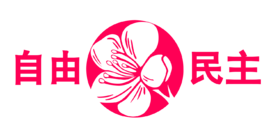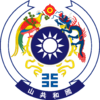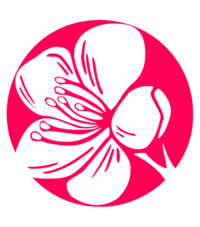Freedom and Democracy Party (Monsilva)
Freedom and Democracy Party 自由民主党 (Zìyóu Mínzhǔdǎng) | |
|---|---|
 | |
| Leader | Lin Yao-tang |
| Senate Leader | Ju Lin |
| Founded | August 1830 August 1958 (current form) |
| Preceded by | People's Culture Party |
| Headquarters | FDP Headquarters 47 Minquan Street, Amking 00046[1] |
| Membership (2022) | |
| Ideology |
|
| Political position | Centre-left |
| National affiliation | Democratic Coalition |
| International affiliation | Progressive Alliance |
| Colours | Red |
| Slogan | "民主不仅仅是选举,它还是一种生活方式。" ("Democracy is not just an election, it's a way of life") |
| Legislative Assembly | 154 / 510
|
| Senate | 33 / 85
|
| State Parliament members | 404 / 1,206
|
| This article is part of a series on the |
| Politics of Monsilva |
|---|
 |
The Freedom and Democracy Party (Monsilvan: 自由民主党, Pinyin: Zìyóu Mínzhǔdǎng) or the FDP, is one of the three main parties in the Monsilvan Republic, along with the RNP and the Liberal Party. It is the current governing party, having won the 2023 Monsilvan federal election. The party was also the leading party and in government between 1996 and 2016, having won the 1996 federal election in a coalition with the Liberal Party of Monsilva, which it formally disbanded in the 2000 federal election. The party is on the centre-left of the political spectrum, and encompasses various ideological factions, with mostly similar views, but with some members leaning more towards centre politics and others towards left-wing politics. The party currently has 154 Members of the Legislative Assembly, 33 Senators and 404 State Parliament members. As well as having more State Parliament members than any other Monsilvan political party, the FDP is also the leading party in 6 state governments. In 2020, after the coalition agreement in parliament, the FDP founded the Democratic Coalition alongside the Green Party and the Social Democratic Party. In 2024, it formed an association agreement with the Shaoyu Liberation Party (which also joined the Democratic Coalition) whereby the FDP would not run any candidates in Shaoyu as long as the SLP follows the party's core ideals. The two parties close relations in history made this a widely accepted decision from members of both parties. Members of the Freedom and Democracy Party are often referred to as "Democrats" or "民主人".
Contents
History
Kingdom of Monsilva
The FDP predecessor was founded in August 1830 with the establishment of the Kingdom of Monsiva after the Monsilvan Civil War. It was originally known as the People's Culture Party, with a slightly more conservative ideology than it does now. It was established as the leading party in government, with its leader, Chai Lin being the first Monsilvan prime minister. The PC/P remained as the leading party until the 1855 general election, where it lost its majority and became the second largest party, being overtaken by the Leaders of Parliament Party. However, the LPP didn't retain their majority in the 1857 general election, which had been called by the emperor after a scandal involving the prime minister, Cheng Li. The PC/P returned to power between 1857 and 1875 under Deng Yahui and Qin Zian. The LPP made a successful comback in the 1875 general election, and remained in power until the 1895 general election. In which the PC/P, lead by Lo Zhou regained its majority and became the party in government again. Under Lo, the government decided to focus on many social issues the country was facing, as opposed to economic problems. The government retained significant popularity, especially by women and citizens of non-Monsilvan ethnic groups and lasted through 3 elections gaining more and more popularity each election. However, when Lo Zhou died of pneumonia in 1902, An Tian took over without election. An Tian was very unorganized and suffered from severe anxiety, but was uncontested in the leadership contest. In the 1908 general election, the People's Culture Party faced a massive loss after experiencing increasing backlash over the struggling economy and became the third largest party in the government, losing to the National Party which moved into second place.
The People's Culture Party was voted out of the Monsilvan parliament in the 1953 general election. This lead to the party losing a significant amount of its membership. After losing over 50,000 members and a lot of money, leading members of the party discussed an urgent re-establishment of the party as the threat of a one-party parliament was becoming close to a reality. In 1958 the party was dissolved in favor of the Freedom and Democracy Party and adopted a more centre-left ideology with social democracy as one of its focus points. This was accelerated after the formation of the Liberal Party of Monsilva, which was made up of former members of the PC/P that were in disagreement over the ideology of the new FDP. The FDP managed to aquire one seat in the 1958 general election, however it lost it at the next election.
Monsilvan Republic
During the Monsilvan Revolution, the Freedom and Democracy Party was a supporter of the Monsilvan Revolutionary Army even though it was lead by an opposing political party, it was an agreement of defeating a common evil (the incumbent government of the Kingdom of Monsilva). The 1980 general election was the first election after the establishment of the republic, in which the FDP won the second most seats, becoming the Official Opposition to the Reformed National Party government. In the 1996 federal election, the FDP won the most seats, but did not have a majority. This lead to the FDP leader, Suen Shi-huang, coming to an agreement with the Liberal Party of Monsilva to form a coalition. This was the first time the FDP was in government and was the first coalition in Monsilvan history. Under Suen Shi-huang, Monsilva saw lots of social reforms, increased devolution to Monsilva's states, a second reform on the education system to fight increasing mental illness in teenagers and an overhaul of the emergency services. In August 1999, Suen fell ill, and the Liberal Party leader, Kong Tsai took over as interim prime minister. However, he had much less support than Suen. In March, Kong got an act to abolish presidential veto into the senate, but it was vetoed by the president. According to the president, Guo Ming-chen, it was "the people's wish". This referred to a petition to prevent the abolition of the presidential veto which had gained over 14 million signatures. Later in March, Suen returned and Kong Tsai was dismissed, and Guo resigned as president. Fortunately for the FDP, Suen's government was very popular from the start and still managed to gain a majority in parliament at the 2000 federal election, which ended the FDP-Liberal coalition. Suen served as prime minister until he reached the term limit at the 2012 federal election, where he was replaced by his former Secretary of State for Education, Lee Su. Lee was not as popular as his predecessor and although winning a majority in the 2012 federal election, he did not manage another majority at the 2016 federal election and lost to the RNP.
The FDP won again under Lin Yao-tang in the 2023 federal election in June.
Policy
The party has generally adopted economic policies working towards decreasing wealth inequality and working on improving trade agreements and government funded projects. The party is also popular for being very progressive on social issues, with states being lead by the FDP usually being the first to adopt progressive policies such Anti-discrimination acts. The party has an official stance of being for the Ostlandet Union (OU), with criticism being very rare. The party also has a strong view on global peace which has faced some praise, but also disapproval on the grounds that it shows Monsilva as being susceptible to persuasion by stronger nations.
Leaders
| No. | Name (Birth–death) |
Term of office | |
|---|---|---|---|
| Took office | Left office | ||
| Leader of the Freedom and Democracy Party (1958–present) | |||
| 1 | Shaiming Chiu (1913–2007) |
August 1958 | October 1963 |
| 2 | Li T'ang (1909–1995) |
October 1963 | October 1975 |
| 3 | Sying Niu (1926–2018) |
October 1975 | August 1984 |
| 4 | Guan-yin Yu (1927–2016) |
August 1984 | August 1992 |
| 5 | Suen Shi-huang (b. 1946) |
August 1992 | June 2012 |
| 6 | Lee Su (b. 1952) |
June 2012 | August 2016 |
| 7 | Lin Qingge (b. 1953) |
August 2016 | May 2019 |
| 8 | Lin Yao-tang (b. 1965) |
May 2019 | present |
Alternative Logo

See also
- Federal government of Monsilva
- Reformed National Party (Monsilva)
- Liberal Party of Monsilva
- Politics of Monsilva
- List of political parties in Monsilva
Notes
- ↑ See also: Postal codes in Monsilva
